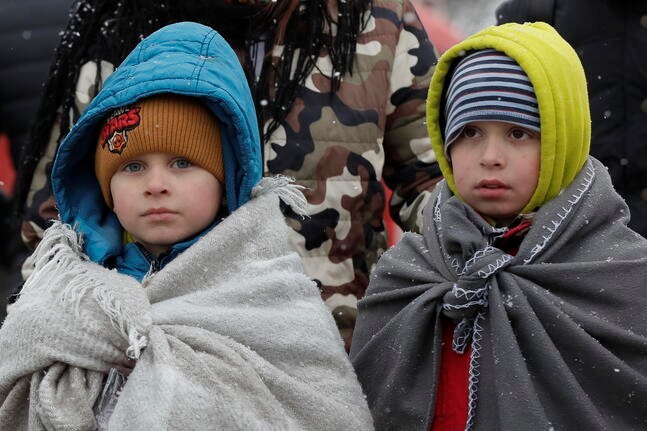
What is Psychological First Aid (PFA)? The importance of mental support in trauma victims
Psychological First Aid (PFA): after someone experiences a traumatic event, their early responses can lead to distress that can interfere with coping
Psychological first aid (PFA) is a disaster relief technique developed by the National Child Traumatic Stress Network and National Center for PTSD (post-traumatic stress disorder)
The goal of the intervention is to provide safety, stability, and resources to people in the immediate aftermath of a traumatic event to increase survivors’ abilities to cope.2
What Is Psychological First Aid?
PFA is not on-site therapy.
Instead, it connects with people in the aftermath of a disaster with resources and support for their immediate needs.
PFA includes eight core components, which include:1
- Making initial contact
- Ensuring people are safe and comfortable
- Calming and orienting people
- Identifying people’s immediate needs
- Offering practical assistance
- Connecting people with resources
- Providing coping strategies
- Linking people to collaborative services
PFA is not professional mental health care.
In fact, laypeople (people without professional credentials) often perform it.
However, certain understandings about people’s coping needs guide PFA, including:3
- The need to feel safe, connected, and hopeful
- The need for access to support
- The need for self-reliance
History
As a concept, PSA was introduced in the mid-20th century. However, it gained traction as a disaster response in the post-9/11 era.4
In 2001, in response to mass shootings in schools, the workplace, and terrorist attacks, the National Institute of Mental Health brought 60 mental health experts together to discuss the psychological interventions to mass violence.4
Since then, PFA has become an integral early intervention disaster response.
“Psychological first aid” is the most widely used term to describe immediate emotional support following a crisis
However, other terms are also used, including:4
- Community-based psycho-social support
- Disaster behavioral health first aid
- Mental health first aid
- Stress first aid
PFA, When Is It Used?
PFA benefits anyone who has survived or witnessed a traumatic event, including people of any age and gender.
The World Health Organization (WHO) identifies the following as crisis events that could benefit from PFA:3
- Natural disasters
- War
- Terrorist attacks
- Disease outbreaks
- Displacement
- Robbery
- Assault
In the aftermath of a disaster, people have common stress reactions.
By reducing people’s immediate stress through PFA, people may have a better ability to cope long-term.
Common stress reactions include:5
- Confusion
- Fear
- Hopelessness
- Insomnia
- Pain
- Anger
- Grief
- Shock
- Guilt
Who Does psychological first aid?
Anyone can be trained in psychological first aid.
However, since certain people are more likely to be present following a disaster, PFA is commonly used by the following:6
- First responders
- Healthcare workers
- School crisis response teams
- Disaster relief organizations
- Basic First Aid Procedures You Should Know
How It Works
Providing PFA may look different from crisis to crisis and even from person to person in the same predicament. That’s because each situation is unique.
In addition, while there are common reactions to disasters, each person has an individual response, and their immediate needs vary.
People trained in PFA learn how to promote the following:
- Safety: Responders help people locate food, shelter, and medical attention.
- Calm: Responders listen to people’s stories and feelings.
- Connection: Responders help people locate friends and family and keep families together.
- Hope: Responders remind people that help is coming and tell them about resources available to them.
- Self-efficacy: Responders give suggestions on how people can help themselves.
What It Is Not
PFA is not therapy, mental health treatment, or debriefing.
Responders avoid forcing interactions, giving simple reassurances, or telling people how they should feel or what they should do.7
The Evidence for PFA
Despite its widespread use and promotion, there is little scientific evidence to support the effectiveness of PFA following disasters.8
However, the practice is still considered an evidence-informed practice (using current best practices in making decisions regarding care of an individual).
Evidence-Informed Practices
Evidence-informed practices, or evidence-based practices, are considered the gold standard of care.
That’s because they are based on proven scientific evidence.
However, in the absence of sufficient scientific support, evidence-informed practices are enriched by evidence but not necessarily limited by it.9
PFA is based on well-established concepts of human resilience.
In addition, mental health and disaster research and response organizations developed PFA.
Therefore, the practice is based on existing knowledge and research.
Psychological first aid (PFA) is a disaster relief response that supports people in the immediate aftermath of a crisis
The goal is to reduce people’s primary stress by connecting them with resources, reuniting them with family and friends, and offering hope to have a better ability to cope long term.
Read Also:
Emergency Live Even More…Live: Download The New Free App Of Your Newspaper For IOS And Android
Intermittent Explosive Disorder (IED): What It Is And How To Treat It
Management Of Mental Disorders In Italy: What Are ASOs And TSOs, And How Do Responders Act?
How Cognitive Behavioural Therapy Works: Key Points Of CBT


